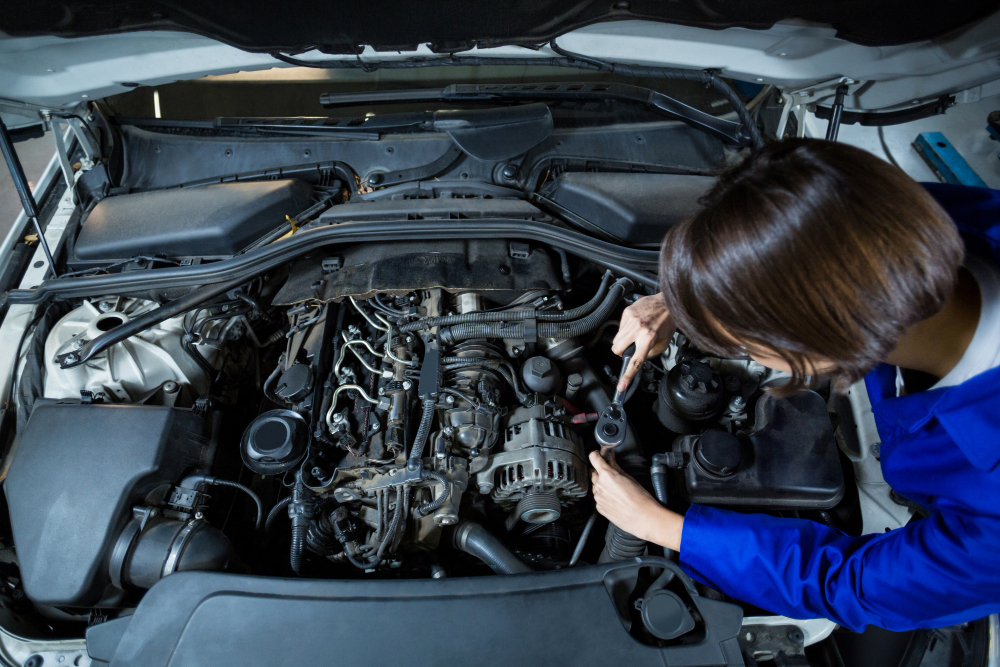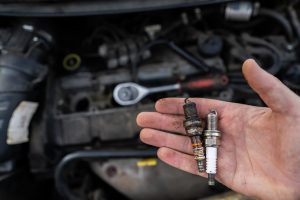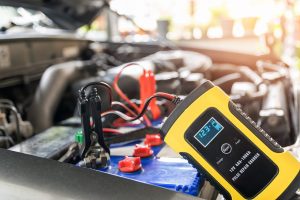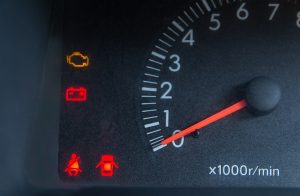Have you ever wondered what keeps your car’s electrical system running like a well-oiled machine? Meet the alternator, the hardworking component that powers your vehicle’s electrical components and ensures your battery stays charged. Without a functioning alternator, you risk being stranded with a dead battery and no power.
While alternators generally last between 6-10 years, understanding their role and recognizing warning signs can help you prevent unexpected breakdowns and keep your vehicle running smoothly. But don’t worry, Green Light Towing Service has your back. If you ever need help with an alternator issue or a jump start service, just call us at 757-938-3378.
What is an Alternator?
An alternator is a crucial component in your vehicle’s electrical system, responsible for generating electricity to power various components and keep the battery charged. It works by converting mechanical energy from the engine into electrical energy through a process called electromagnetic induction.
How an Alternator Works
- Converting mechanical energy to electrical energy: As your engine runs, it spins a belt that turns the alternator’s rotor. This rotor is essentially a spinning magnet that moves within a set of stationary coils, known as the stator.
- Generating alternating current (AC): The spinning motion of the rotor creates an alternating current (AC) in the stator windings. However, your vehicle’s electrical system operates on direct current (DC).
- Rectifying AC to DC: To convert AC to DC, the alternator uses a rectifier, which is a set of diodes that only allow current to flow in one direction. This conversion process ensures that the electricity generated by the alternator is compatible with your vehicle’s electrical system.
The Relationship Between Alternators and Batteries
Alternators and batteries work together to keep your vehicle’s electrical system functioning properly. The battery provides the initial power needed to start your engine, while the alternator takes over once the engine is running. It generates electricity to power the vehicle’s electrical components and recharges the battery, ensuring it has enough power for the next start.
The Importance of a Properly Functioning Alternator
A properly functioning alternator is essential for powering your vehicle’s electrical components and maintaining battery charge. Some of the critical components that rely on the alternator include:
- Headlights and interior lights: Your vehicle’s lighting system, including headlights, taillights, and interior lights, depends on the alternator for power.
- Infotainment systems and electronic accessories: Modern vehicles are equipped with various electronic accessories, such as infotainment systems, power windows, and heated seats, all of which require a steady supply of electricity from the alternator.
- Sensors and control modules: Your vehicle’s engine management system relies on a network of sensors and control modules that need a stable electrical supply to function correctly.
Consequences of a Malfunctioning Alternator
A malfunctioning alternator can lead to various problems, including:
- Battery drain and dead batteries: An alternator that isn’t charging the battery properly, it can lead to a dead battery and leave you stranded.
- Flickering or dimming lights: When your vehicle’s lights starts to dim or flicker, it could mean that the alternator is not generating enough power.
- Electrical component failure: Without a steady supply of electricity, your vehicle’s electrical components may malfunction or fail entirely.
- Stalling or difficulty starting the engine: In extreme cases, it can cause your engine to stall or make it difficult to start.
On average, alternators last between 6-10 years, but factors such as extreme temperatures, excessive electrical loads, and poor maintenance can shorten their lifespan.
Signs of Alternator Trouble
Knowing the warning signs of a failing alternator can help you address the issue before it leads to a breakdown. Some common signs include:
- Battery warning light on the dashboard: If you see the battery warning light illuminated on your dashboard, it could indicate that your alternator isn’t charging the battery properly.
- Flickering or dimming lights: As mentioned earlier, dimming or flickering lights can be a sign that your alternator is struggling to generate enough power.
- Unusual noises: A failing alternator may produce unusual noises, such as whining, grinding, or squealing sounds, indicating that the bearings or other components are wearing out.
- Burning rubber smell: If you notice a burning rubber smell coming from your engine bay, it could be a sign that the alternator’s drive belt is slipping or overheating.
- Electrical component malfunctions: If you experience issues with your vehicle’s electrical components, such as power windows or the infotainment system, it could be a sign of a failing alternator.
Maintenance and Care for Alternators
To keep your alternator in good working condition, regular maintenance is essential. This includes:
- Regular inspection and testing: Have your alternator visually inspected for signs of wear or damage during routine maintenance. A voltage test can also be performed to ensure that it’s generating the proper output. A good alternator should maintain the battery voltage between 13.9 and 14.8 volts, with 14.2 being the optimal level.
- Proper battery maintenance: Keep your battery terminals clean and tight, and ensure that the battery itself is in good condition. If your battery has removable caps, check the fluid levels regularly and top them off with distilled water if needed.
- Prompt repairs or replacement: If you suspect that your alternator is failing, have it inspected by a professional mechanic as soon as possible. Catching and addressing problems early can prevent further damage and save you from a breakdown.
Conclusion
Alternators play a vital role in your vehicle’s electrical system, powering essential components and keeping the battery charged. By understanding how they work and recognizing the signs of trouble, you can help prevent breakdowns and extend the life of your alternator. Remember, proper maintenance, including regular inspections and voltage tests, can go a long way in keeping your alternator functioning optimally.
If you ever find yourself stranded due to an alternator issue in the Virginia Beach area, don’t hesitate to call Green Light Towing Service at 757-938-3378. Our expertise in electrical problems can help you get back on the road safely and quickly.




